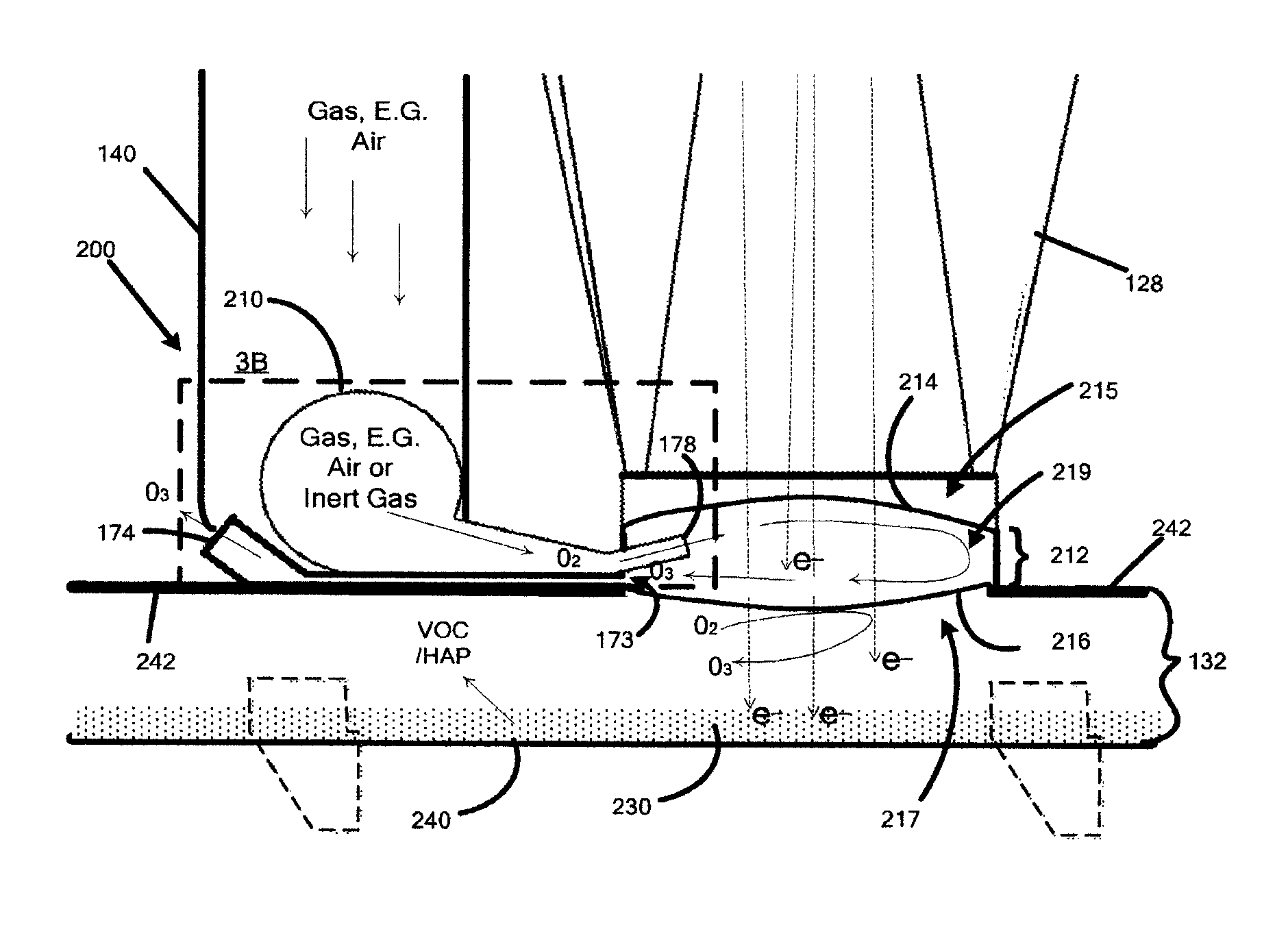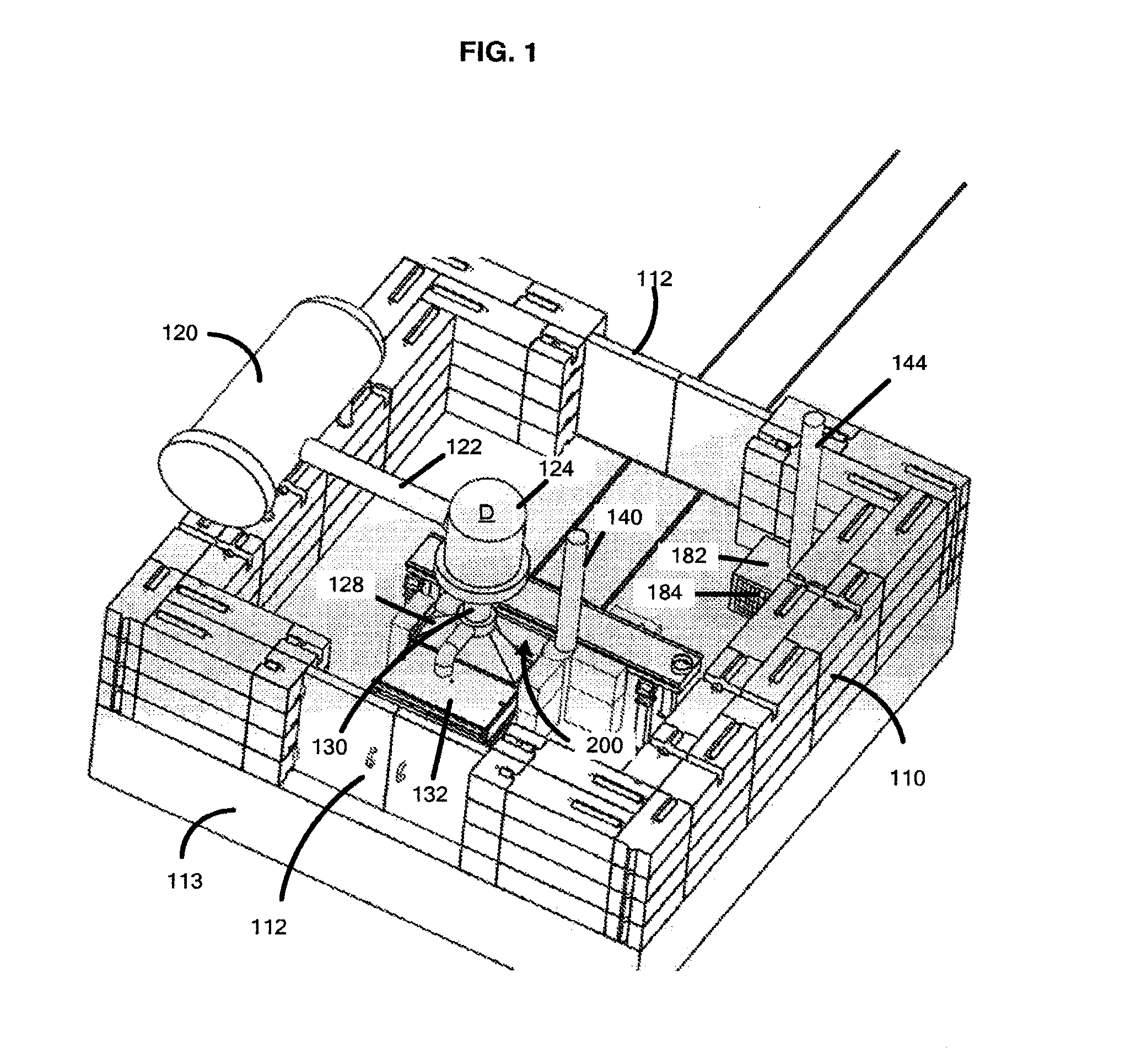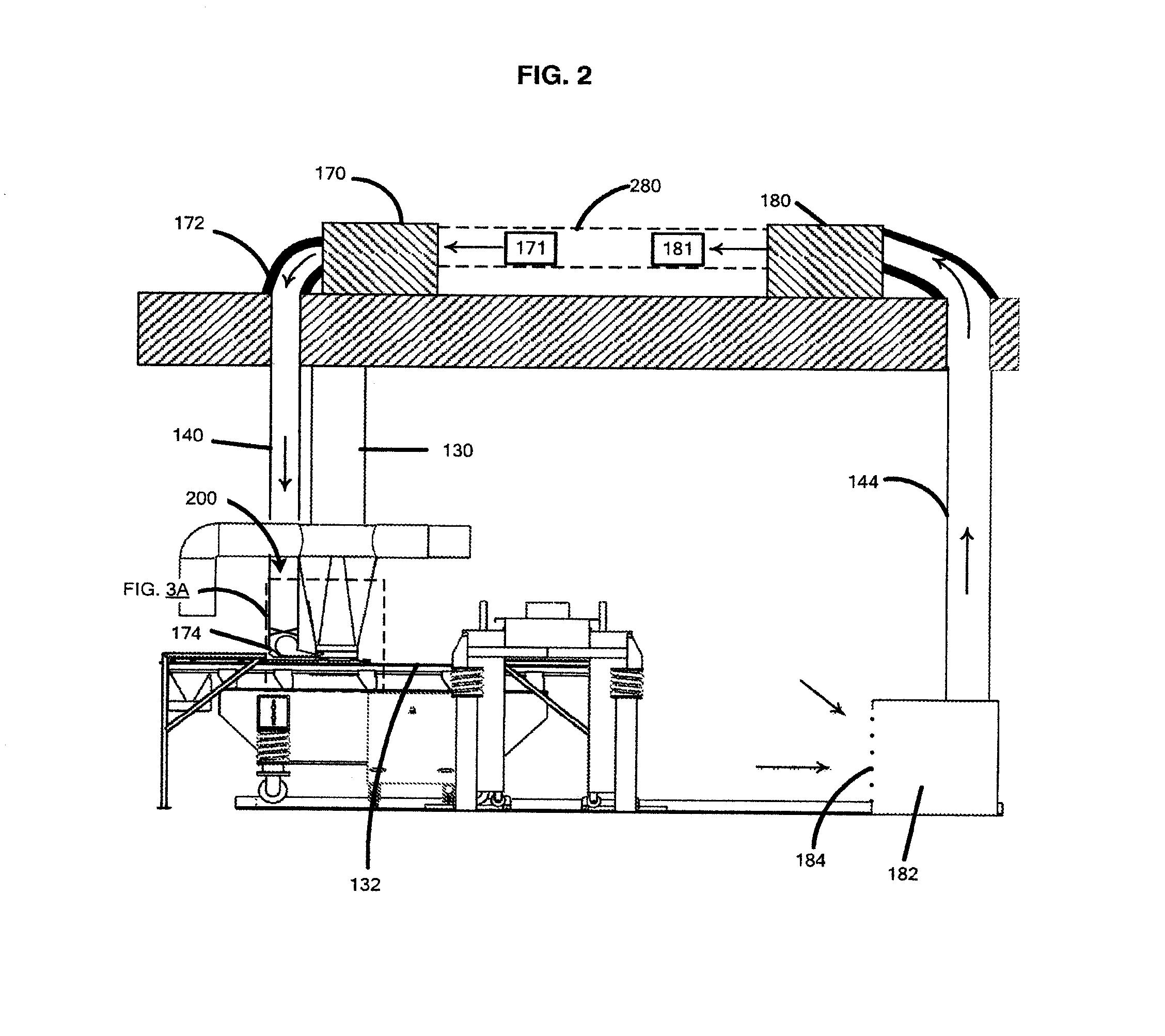Controlling process gases
a technology of process gases and gas concentrations, applied in the direction of energy input, energy based chemical/physical/physical-chemical processes, energy based wastewater treatment, etc., can solve the problems of low yield of cellulosic materials, difficult access to compact matrix by enzymes and other chemical, biochemical and/or biological processes, and often under-utilized materials, etc. problems, to achieve the effect of reducing the recalcitrance of biomass materials, reducing the concentration of hazardous gases, and reducing the recalci
- Summary
- Abstract
- Description
- Claims
- Application Information
AI Technical Summary
Benefits of technology
Problems solved by technology
Method used
Image
Examples
Embodiment Construction
[0022]Using the equipment, methods and systems described herein, cellulosic and lignocellulosic feedstock materials, for example, that can be sourced from biomass or processed biomass (e.g., plant biomass, animal biomass, paper, and municipal waste biomass) and that are generally readily available, can be turned into useful products (e.g., sugars such as xylose and glucose, sugar alcohols and other alcohols such as ethanol and butanol. Described herein are methods and systems for removing (e.g., filtering, destroying, diluting, converting) process gases, for example, ozone and VOCs, produced during biomass processing, e.g., during irradiation of the biomass with an electron beam.
[0023]Processes for manufacturing sugar solutions and products derived therefrom are described herein. These processes can include, for example, optionally mechanically treating a cellulosic and / or lignocellulosic feedstock. Before and / or after this treatment, the feedstock can be treated with another treatm...
PUM
 Login to View More
Login to View More Abstract
Description
Claims
Application Information
 Login to View More
Login to View More - R&D
- Intellectual Property
- Life Sciences
- Materials
- Tech Scout
- Unparalleled Data Quality
- Higher Quality Content
- 60% Fewer Hallucinations
Browse by: Latest US Patents, China's latest patents, Technical Efficacy Thesaurus, Application Domain, Technology Topic, Popular Technical Reports.
© 2025 PatSnap. All rights reserved.Legal|Privacy policy|Modern Slavery Act Transparency Statement|Sitemap|About US| Contact US: help@patsnap.com



